Student Lifestyle Client - Proofreading & SEO Optimization
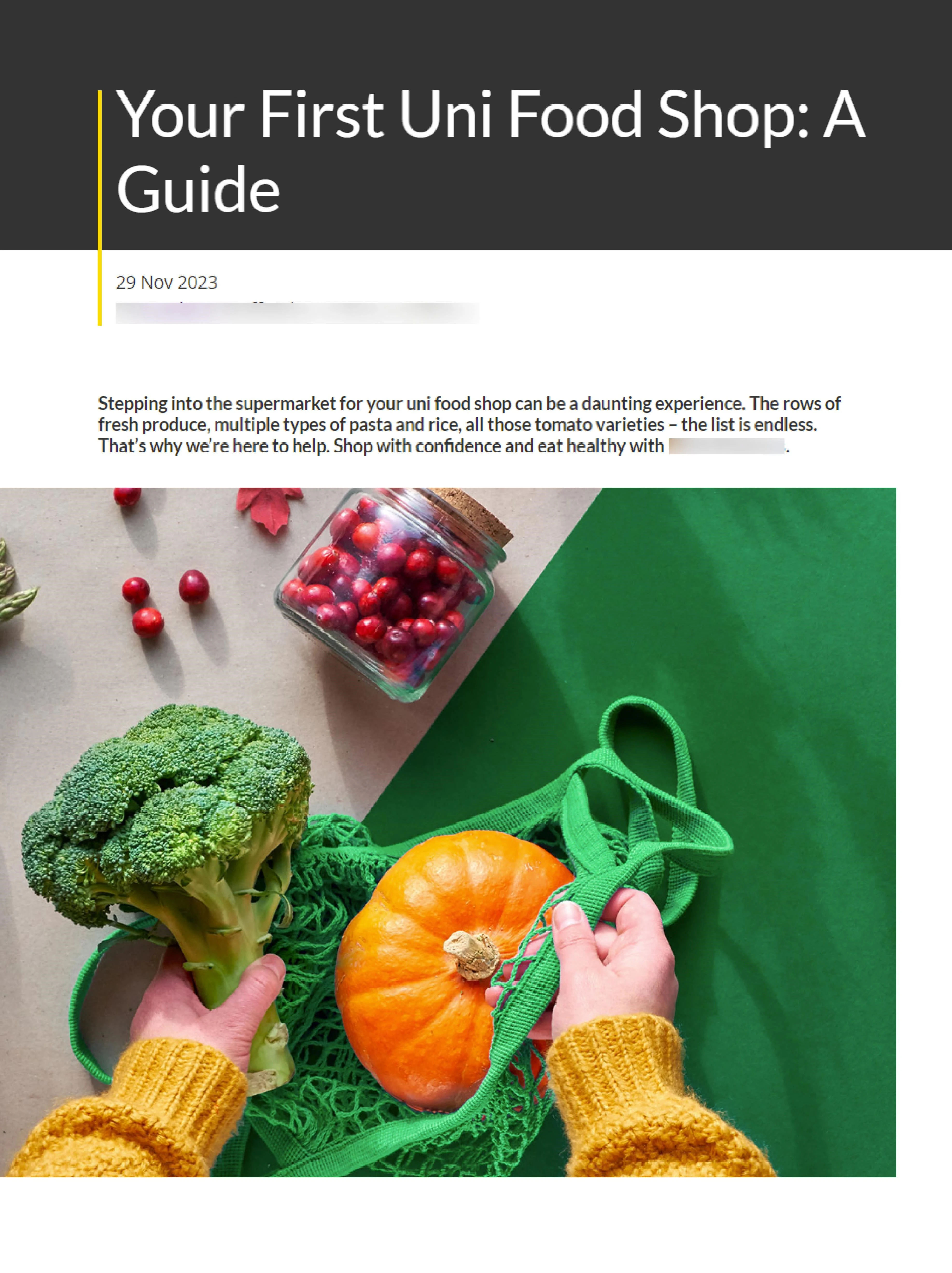
Your First Uni Food Shop: A Guide
You feel hungry and head to the kitchen for something to eat, only to find the fridge and cupboards bare. Your stomach growls in protest and you sigh. It’s time for a grocery trip.
Stepping into the supermarket for your uni food shop can be daunting. The rows of fresh produce, multiple types of pasta and rice, all those tomato varieties – the list is endless. And that doesn’t even begin to cover the multiple brands to choose from. So where do you begin?
That’s why we’re here to help. From top tips to do’s and don’ts, we’ve put together a basket full of advice for your first uni food shop. Shop with confidence and eat healthy with Unite Students.
In this blog we'll cover:
Your first uni shop: top tips
Your first food shopping list
Do’s and donts for your first food shop
Your first uni food shop: top tips
Plan your meals
Planning your meals before a shop can help you save money and prevent food waste. It also stops you impulse spending. Before you head out, make a list of food items you need to prepare your meals.
Your first food shop list should include items for breakfast, lunch and dinner. Think milk, eggs, bread, pasta, rice, and fruit and veg.
Consider batch cooking
One thing’s for sure – you won’t have time to cook every day. That’s where batch cooking comes in handy. When sorting your uni food shop list, consider buying double the amount of items. That will allow you to cook larger amounts of food that you can store for later.
If you and your flatmates have similar appetites, it might be easier to shop and meal prep together. Not only does it save time and money, but it can be fun to do with friends.
Set a budget
Once you’ve navigated the maze of aisles, you’ll be surprised how quickly everything adds up. So, it’s important to have a budget.
Making a list for your first food shop helps to know how much you’re likely to spend. But you’ll also want to look out for discounts and special offers. Some shops even offer a student discount, so be sure to make the most of it.
If it all sounds new to you, we have a guide on how to budget as a student as well.
Allow yourself some treats
Uni life is busy and juggling studying and socialising can be overwhelming, so you deserve the odd treat. You might be tempted to buy snacks from the corner shop, or order from Deliveroo and Uber Eats. But that can work out more expensive than if you plan ahead.
If snacks and treats are part of your uni food shop, consider buying them at the supermarket. You’re more likely to get a discount, which will allow you to buy in bulk and stock up way easier.

Your first food shopping list
Carbohydrates
Carbs form the base of most meals. Not only are they versatile, but they’re filling and provide the ultimate ‘brain fuel’ – perfect for those long study sessions.
Pasta
Rice
Potatoes
Cereal
Bread
Grains
Starchy vegetables
Tortillas
Tins and cans
Tinned and canned foods are a cheap and non-perishable way to bulk out meals. As well as incorporating more meat and veg into your diet, they can come in handy when you can’t fetch fresh food from the store.
Tuna
Tomatoes
Beans
Canned fruit
Corn
Soup/broth
Tomato sauce
Olives
Spaghetti hoops
Red kidney beans
Vegetables
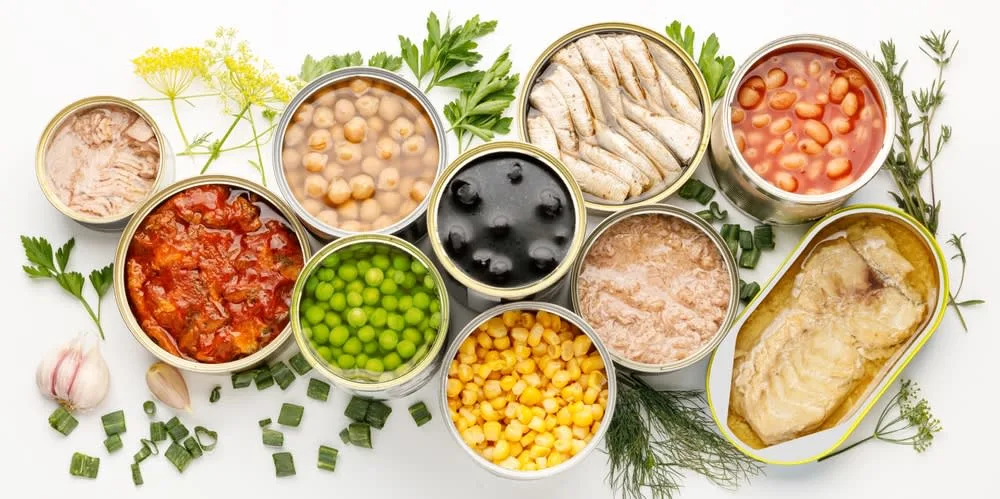
Fresh fruit and veg
Fruit and veg are important factors in any healthy meal. But be careful of buying too many – some will go bad if left for too long. Pro tip: Buy them together with flatmates, and get more value from sharing and refreshing your stock regularly.
Apples
Carrots
Grapes
Oranges
Cabbage
Corn
Peppers
Bananas
Onions
Berries
Cucumbers
Lettuce
Avocados
Lemon/lime
Tomatoes
Cauliflower
Peas
Protein
Protein is another important factor in a meal. But remember to be inclusive of any vegetarians or vegans in the house.
Chicken
Mince
Quorn
Eggs
Pork
Bacon
Fish
Beef
Sausage
Mince
Tofu
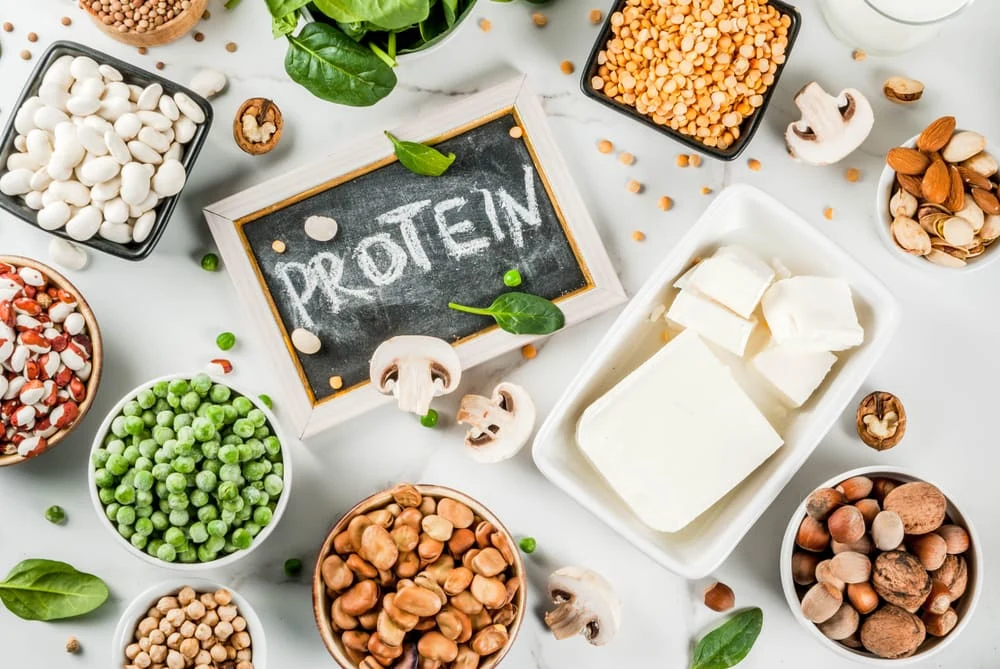
Dairy
Dairy products make a staple part of lots of meals. They’re also incredibly healthy, packed with essential nutrients including calcium, potassium, protein, vitamin D and much more.
Cheese and cheese slices
Milk (and alternatives)
Cream
Butter
Yoghurt
Sour cream
Condiments, herbs and spices
Having a stash of condiments, herbs and spices can liven up even the blandest meals. Stock up on the essentials to enhance the flavour, aroma and colour of your favourite dishes.
The trick is to grow your spice mix over time. Don’t buy everything all at once. Instead, look for inspirations and unique meals, and add condiments according to them. Eventually, you’ll build up a pantry that allows you to cook a variety of cuisines with ease.
Salt and pepper
Pre-mixed spices
Chilli sauce
Seasonings
Stock cubes
Ketchup
Basil
BBQ sauce/brown sauce
Mayonnaise
Honey
Cooking sauce
Peanut butter
Salad dressing
Vinegar
Cooking oil
Marmalade
Mixed herbs
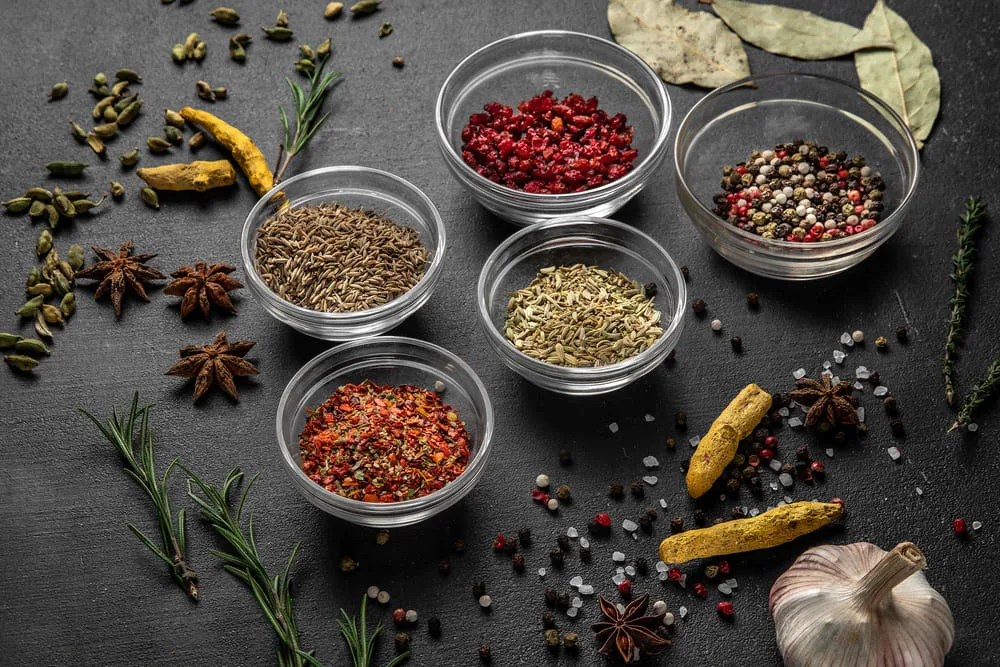
Hot drinks
Whether it’s a boost of caffeine to start the day or a comforting cuppa in the evening, hot drinks are a must in the household.
Tea bags
Coffee
Hot chocolate
Sugar
Fruit tea
Coffee sachets
Honey
Fresh tea (mint, lemon, ginger)
Frozen items
Early morning cravings are quite common when you’re up late studying at uni. Frozen foods last a lot longer and you’re able to use the amount you need when you need it. They can also save you money and help you make a meal in a pinch.
Oven chips
Frozen veg
Frozen meat and fish
Waffles
Beef burgers (or meet free burgers)
Pie
Ready meals
Fish fingers
Garlic bread
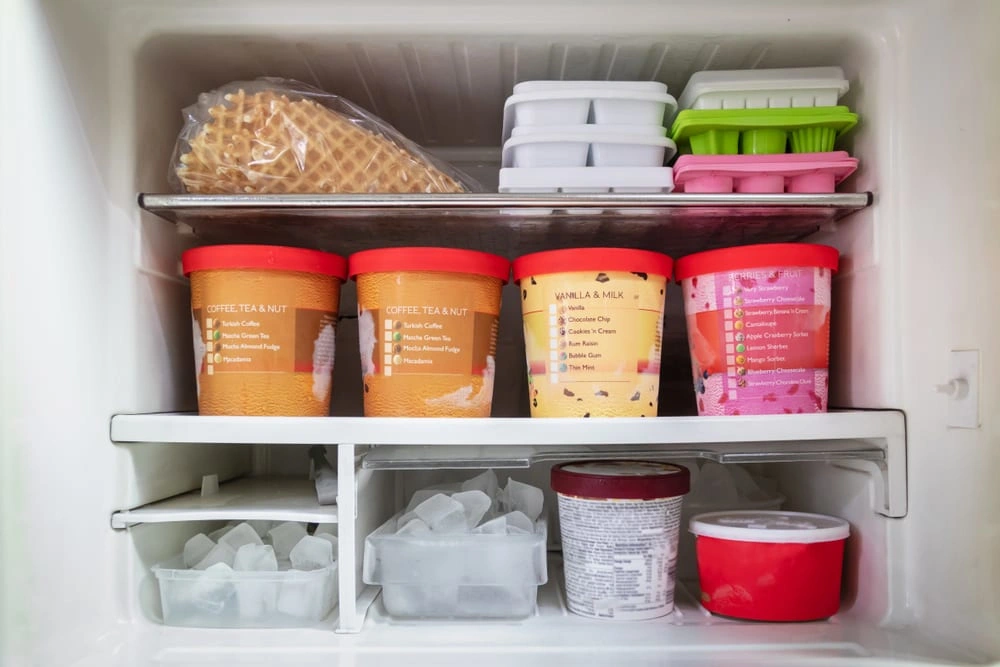
Snacks and treats
Having something to indulge in will keep you going during studying. They’re also perfect for quiet evenings in and cravings after nights out.
Crisps
Biscuits
Chocolate
Drinks
Pudding
Crackers
Snack bars
Nuts
Sweets
Popcorn
Pretzels
Cookies
Toiletries
Necessities in every household. These can be cheaper to buy at the supermarket as opposed to high street chemists.
Shampoo/conditioner
Shower gel/bath soap
Tampons
Toothpaste
Mouthwash
Deodorant
Cotton swabs
Lotion
Face wash
Razors
Shaving cream
Floss
Household items
You’re all living under one roof, so it makes sense for everyone to contribute to the essential household items. Otherwise, you’ll all be taking up valuable storage space and spending more money to have tons of the same stuff.
Washing up liquid
Toilet roll
Cleaning products – bleach, polish, window cleaner etc
Laundry detergent and fabric softener
Air freshener
Kitchen roll
Bin bags
Aluminium foil
Cling film
Batteries
Lightbulbs
Hand soap
Sponges

Do’s and dont’s for your first food shop
Don’t forget your bags
Most households have that one mysterious drawer full of shopping bags. Go green and save the planet by taking reusable bags with you on your first uni food shop. Chances are you’ll have collected a few of these from freshers’ fairs already! Bringing your own will prevent you from paying for bags at checkout, and helps to cut plastic waste.
Do check your recipes before you set off
Do a quick check of the items you already have before heading out – even if you’re halfway out the door. This will make sure you don’t forget anything important. There’s nothing worse than getting home and realising you forgot that all-important ingredient. Or buying an item that you already had in the cupboard.
Don’t get carried away
We know we said to buy in bulk, but try to limit yourself to what you’ll be able to carry home. Having bags upon bags of items can be an extreme sport when you leave the shop. If you or your flatmates have a car – great! Otherwise, consider doing another uni food shop later in the week.
Do look out for discounts and offers
Every supermarket has special deals and offers from time to time. While on your student food shop, look out for unique stickers for half price or buy one get one free. It might even be worth getting a loyalty card for your nearest supermarket. Alternatively, make use of your student discount. Even if it’s a few pounds off, you’re still saving money!
But don’t fall for every single deal
Sometimes special deals can be a little too tempting. Some items might be on sale because they’re likely to spoil the next day. And other deals will make you buy stuff you don’t actually want or need. When you do your first food shop, focus on the items that you usually buy.
Don’t buy too many perishable items
Perishable items like dairy products and fresh fruit and veg are likely to spoil before you can get through them all. You’ll end up throwing a lot of it away and wasting food. Try not to add too much to your uni food shop list and think about which foods you can buy frozen instead.
Like this project
Posted Mar 18, 2024
Long-form Blog article by Unite. Proofread the article for errors and readability. Optimized incorporation of keywords through easy-to-understand semantics.









